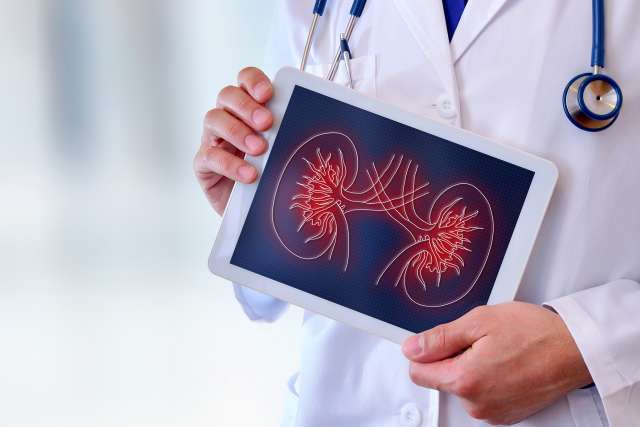Chronic kidney disease (CKD) is a condition that affects millions of people worldwide. The kidneys play a crucial role in filtering waste and excess fluid from the blood, regulating blood pressure, and maintaining electrolyte balance. When the kidneys are damaged, it’s essential to manage CKD carefully to prevent further complications. In this blog post, we will provide you with a comprehensive guide to chronic kidney care, including lifestyle changes, diet recommendations, and tips for managing this condition effectively.
Understanding Chronic Kidney Disease (CKD): Chronic kidney disease is a long-term condition characterized by the gradual loss of kidney function over time. It is often divided into five stages, with stage 1 being the mildest and stage 5 indicating kidney failure. Early detection and management are crucial to slow the progression of CKD.
Lifestyle Changes for Chronic Kidney Care:
- Stay Hydrated: Proper hydration is essential for kidney health. Drinking enough water can help flush out toxins and waste products from the body.
- Monitor Blood Pressure: High blood pressure is a common cause of CKD and can accelerate its progression. Regular blood pressure monitoring and medication as prescribed by your doctor are crucial.
- Quit Smoking: Smoking can worsen kidney damage and increase the risk of cardiovascular problems. Quitting smoking is a critical step in kidney care.
- Manage Diabetes: If you have diabetes, keeping your blood sugar levels in check is vital, as uncontrolled diabetes can lead to kidney damage.
- Limit Alcohol Intake: Excessive alcohol consumption can harm the kidneys. Moderation is key.

Dietary Recommendations:
- Reduce Sodium: High sodium intake can increase blood pressure and strain the kidneys. Limit processed foods and use herbs and spices for flavor.
- Control Protein Intake: Consuming too much protein can put extra stress on the kidneys. Consult with a dietitian to determine an appropriate protein intake for your condition.
- Watch Phosphorus and Potassium: People with CKD may need to monitor phosphorus and potassium intake. Foods high in these minerals should be limited.
- Stay Well-Nourished: A balanced diet with a variety of fruits, vegetables, whole grains, and lean proteins can provide essential nutrients and support overall health.
Medications and Treatment: Your healthcare provider may prescribe medications to manage specific aspects of CKD, such as blood pressure, anemia, or bone health. It’s essential to take these medications as directed and attend regular check-ups.
Regular Monitoring and Follow-Up: CKD requires ongoing monitoring by healthcare professionals. Regular check-ups, blood tests, and urine tests can help track your kidney function and make necessary adjustments to your treatment plan.
Conclusion: Chronic kidney care is a lifelong journey that requires dedication and proactive management. By making lifestyle changes, following dietary recommendations, and working closely with your healthcare team, you can slow the progression of CKD and improve your overall quality of life. Remember, early intervention and proper care are the keys to a healthier future with chronic kidney disease.




